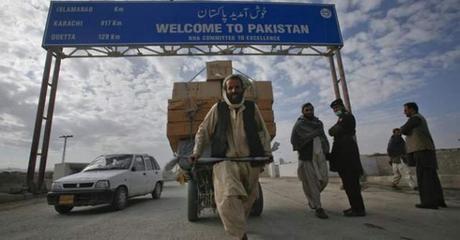
The process of moving goods across borders is a major source of corruption around the world.
As the world commemorates International Anti-Corruption Day, renewed progress in the implementation of the Trade Facilitation Agreement (TFA) provides a reason for optimism in the fight against corruption.
Reached during last year’s World Trade Organization (WTO) accord in Bali, the TFA creates binding commitments across 159(+) WTO members to expedite movement, release and clearance of goods, improve cooperation on customs matters, and moreover, help developing countries effectively meet these obligations.
The TFA is also a potentially invaluable tool for tackling corruption as the simplification of customs procedures can greatly reduce opportunities for corruption. As the World Bank’s Customs Modernization Handbook sets forth, customs procedures are a key source of corruption, as officials and workers seek bribes in order to move goods in and out of the country.
Given the formidable barrier that corruption poses for both developed and developing countries, one may question how explicitly this agreement will challenge corruption, and what this will look like in terms of activities creating outcomes. In an Economic Reform Feature Service article released by CIPE today, Laura B. Sherman, senior legal adviser at Transparency International USA, breaks the larger TFA into its individual components and addresses in practical terms how each will translate into activities that prevent corruption.
Sherman’s analysis provides an easily followed roadmap that bridges any disconnect between the negotiated agreement and clear actionable steps that can be taken. This breakdown adds a useful analytical component to CIPE’s anti-corruption work. In working comprehensively across sectors to identify, inform, and support both the private sector and civil society in countries such as Ukraine, Kenya, Indonesia, and Thailand, CIPE is helping to overcome corrupt practices by providing the and knowledge sharing crucial for tackling corrupt practices.
The OECD estimates that for every one percent reduction in global trade costs, global incomes rise by $40 billion – and that the new WTO Trade Facilitation Agreement can cut trade costs by almost 14.5 percent for low-income countries and 10 percent for high-income countries. Additionally, corruption has been estimated to cost 5 percent of global GDP per year (US$2.6 trillion, World Economic Forum) with the cost of paid bribes alone estimated to be over US$1 trillion per year. (World Bank). These numbers serve not only to encourage adoption of the Agreement, but stand as a testament to the important role the private sector and international trade community must play in ridding the world of corruption.
Read the whole article here.
Stephanie Bandyk is a Program Assistant for Global Programs at CIPE.

